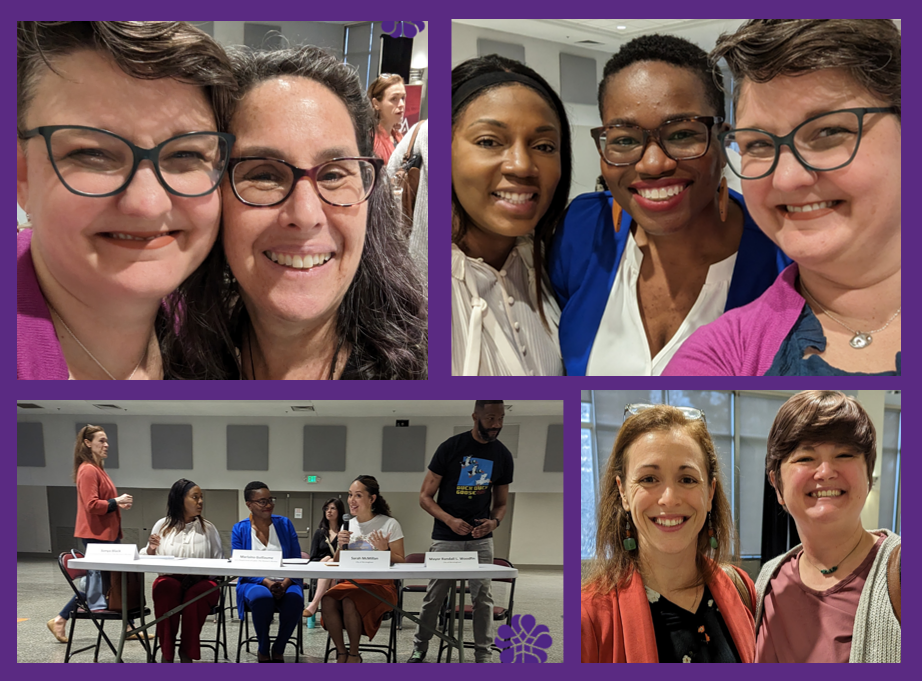By Hillary Melchiors, PhD, MPH, CD (DONA), LCCE
President of DONA International
Friday February 24th, 2023, the U.S. Department of Labor Women’s Bureau and the City of Birmingham, Alabama hosted a roundtable discussion regarding doulas in the workforce as part of the answer to maternal* and infant mortality. It was my honor to be able to go to Birmingham as the president of DONA International to sit at this table and to talk about the role of doulas and how we can help. Malaina Guillaume & Sonya Black from the Women’s Bureau helped host this meeting along with Mayor of Birmingham Randall Woodfin and his City of Birmingham Manager of Workforce and Talent Sarah McMillan. This meeting brought together stakeholders from the area to address barriers, breakdown information silos, and get everyone together to keep the conversation going to address the dire needs of the City of Birmingham and the state of Alabama in addressing maternal and infant mortality.
I was so honored to be invited to this meeting and to Birmingham by DONA trainer Dalia Abrams and Susan Petrus the executive director and co-founder of Birthwell Partners, a community doula training and service established in Birmingham in 2011 and recently awarded funding through the city’s Building Opportunities for Lasting Development (BOLD) program to train 32 more doulas there. Members from several local hospitals, service providers, and research institutes were also present. Of special mention was Dr. Holly Horan, assistant professor at the University of Alabama who, along with her graduate student Emily Locke, continues to conduct research on community doula services in collaboration with Birthwell Partners, Sheila Lopez a Certified Nurse Midwife soon starting to practice at UAB Hospital, and other amazing local leaders.
My favorite takeaways from the conversation that I’d like to share with you are these:
- Education about the role of the birth doula is important; not everyone understands clearly how doulas are different from midwives, nurses, etc.
- A collective voice of all doulas would be helpful for funding and legislation efforts.
- Silos of information & available resources aren’t helping anyone.
- Hospital unit culture has to change if we want real buy in to effect real change.
- Doulas can bring a unique perspective to maternal health task forces.
- Doulas must be paid fairly for the work we do, & sustainability has to be a focus.
After the meeting ended, we took some selfies of course, because that’s what you do, and then several of us went to this awesome local place: The Pizitz. There we continued the conversation, joined by more local doulas. It was so great to connect with doulas and local stakeholders to hear even more about their experiences in Birmingham and how DONA International can help them. Honestly, this may have been my favorite part of the trip, and not just for the amazing Indian street food that I got there. As a birth doula who works in Indiana, it was great to contrast what we encounter here with the stories I heard from the Alabama birth doulas too.
Pulling up a seat to the tables where doulas are being discussed is a major priority for DONA International. As a volunteer-run organization for doulas by doulas, we want to make sure that the doula voice is heard in the cacophonous discussion about how we can be part of the solution for dealing with infant and birthing person health here in the United States and elsewhere in the world too. If we can support you in your community through advocacy, information, or presence, please reach out to us about your needs. We know our members are out there doing the hard work in your communities, and we want to support your efforts in any way we can. If you’d like to be part of our efforts, we have multiple committee spots open in communications, advocacy, & others that you can peruse at this link!
*Please note: The word maternal has been used in this blog in recognition of the title of the meeting and committee as they were and are titled officially. It is DONA policy to utilize inclusive language in recognition that not all birthing persons identify the same way, and I have inserted inclusive language as I am able depending on the official context.



I am so proud of Hillary and of DONA for making this contribution. Inch by inch, doulas are making a difference!